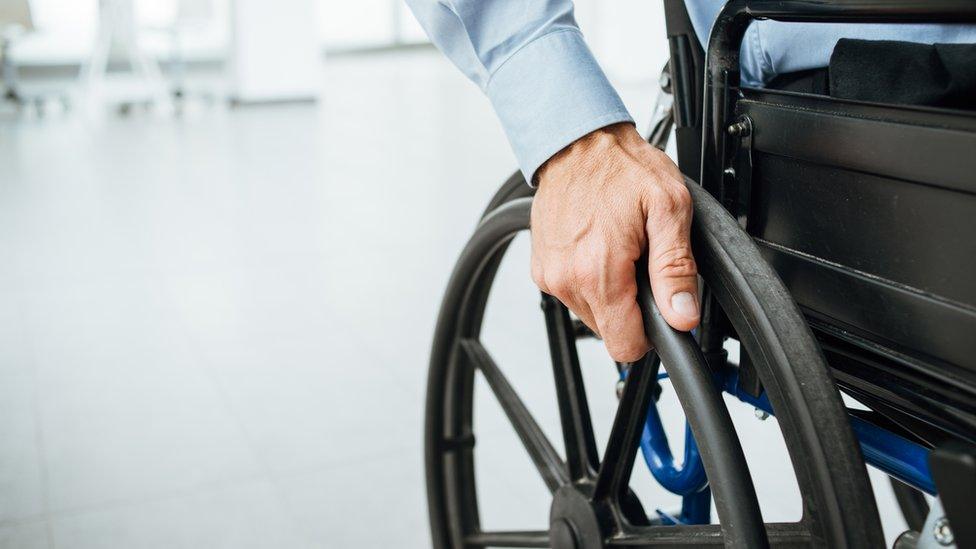Disabled equality 'at risk' in Scotland
- Published

The commission said that 15% of all wheelchair users did not have adequate housing
Twenty years of progress towards real equality for disabled people in Scotland could be at risk, the Equality and Human Rights Commission has said.
The commission warned that a "concentrated effort" needed to be made around housing, hate crime, mental health, employment and education.
And it said 15% of Scottish wheelchair users were "inadequately housed".
But the Scottish government said the report failed to acknowledge its disability delivery plan, external.
The Equality and Human Rights Commission (EHRC) said it had highlighted several "significant inequalities" in Scotland as part of a UK-wide report into disabled life.
They included:
Disabled pupils have much lower attainment rates and are more likely to be permanently or temporarily excluded
Disabled Scots are two and a half times more likely to be unemployed than non-disabled people
On average, disabled people in Scotland earn £1.10 per hour less than non-disabled people
The amount of wheelchair-adapted local authority housing has decreased
Alastair Pringle, head of EHRC Scotland, said the report brought the disadvantages that Scottish disabled people faced into "sharp focus".
"The Scottish government's disability action plan, and their commitment to putting dignity and respect at the heart of their new social security powers, are very welcome and I hope they will lead to improvements in the outcomes we are reporting on today," he said.
"We have a large pool of skilled and talented people who are unable to fully contribute to Scottish society - economically, socially or civically - because of avoidable barriers.
"This isn't just a problem for disabled people it's a problem for all Scots - we need to harness this untapped potential"
Learning needs
Scottish Minister for Social Security, Jeane Freeman, welcomed the focus the report put on some of the challenges faced by disabled people, but said she was disappointed it failed to acknowledge the work the Scottish government was already doing.
She added: "Indeed, we are the first country in the UK to publish an action plan specifically linked to the UN Convention on the Rights of Persons with Disabilities.
"Our actions include setting targets to increase the number of disabled people employed in the public sector and seeking to reduce by at least half the employment gap for disabled people across all sectors, working to improve timely access to mental health services, and taking steps to encourage disabled people to report hate crime.
"It also focuses on the learning needs of pupils - in Scotland the attainment and positive destinations of pupils with additional support needs continue to rise."